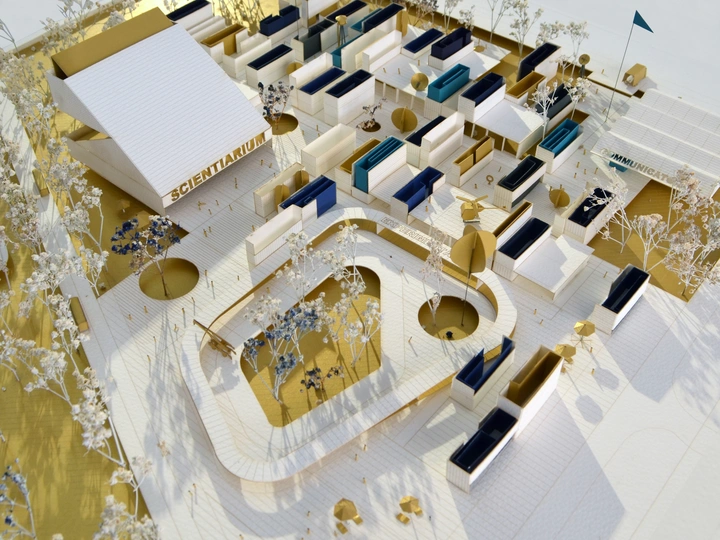“1%”. Proposal for a Start-up Ecosystem

draftworks* architects was founded in London in 2006 by Christiana Ioannou dipArch., MSc (NTUA) and Christos Papastergiou dipArch, MSc (NTUA), PhD (UCL), and is currently based in Nicosia and Athens. The team crafts, documents and communicates new ideas with the use of drawings, images, model making and text while sharing interests between public competitions, private commissions, exhibitions, design research and academic teaching. The team has exhibited and published worldwide.
‘1%’ is an urban and architectural project that seeks to redefine the typology of the small workshop, its traditional role as a cell of innovation, its place in the urban context as a place of interaction and, at the same time, investigate the synergy that we can create today between small workshops targeted in technology innovation and funding schemes or policies from private and governmental agencies that seek to invest in innovation in renewable energy technologies.
The project starts by proposing a policy. According to this, the estimated percentage of the capital that the Norwegian Wealth Fund plans to invest in renewable energy (1% of Norwegian GNP $8.3 Billion) can be directed towards the funding of a network of small workshops that coexist in an inclusive site (a Start-up Ecosystem) dedicated to renewable energy technologies, sustainable farming, smart housing and research in sustainable methods. The ‘1%’ policy could extend to include funding from other companies, private or governmental, that seek to invest in renewable energy technologies.
The urban model that we propose is that of the ‘Start-up Ecosystem’, that is, a welcoming environment where young start-ups can find shelter, grow and flourish their ideas, establish and develop research form teams and attract interest from investors. The Ecosystem consists mainly of four components: 1. The ‘R&D units’: small adaptable workshops for hosting temporary research & development projects run by teams who are supported by the company and other funds, 2. The ‘Communicatorium’: a public space for communicating ideas between groups and possible investors, 3. The ‘Scientiarium’: a public space for educating researchers and providing to them access to networks, and finally 4. The ‘Experimentarium’: a public space for the groups to test and present their prototypes in public. The space in-between the components is treated as a public space, where the public can have access and watch the projects in the making.